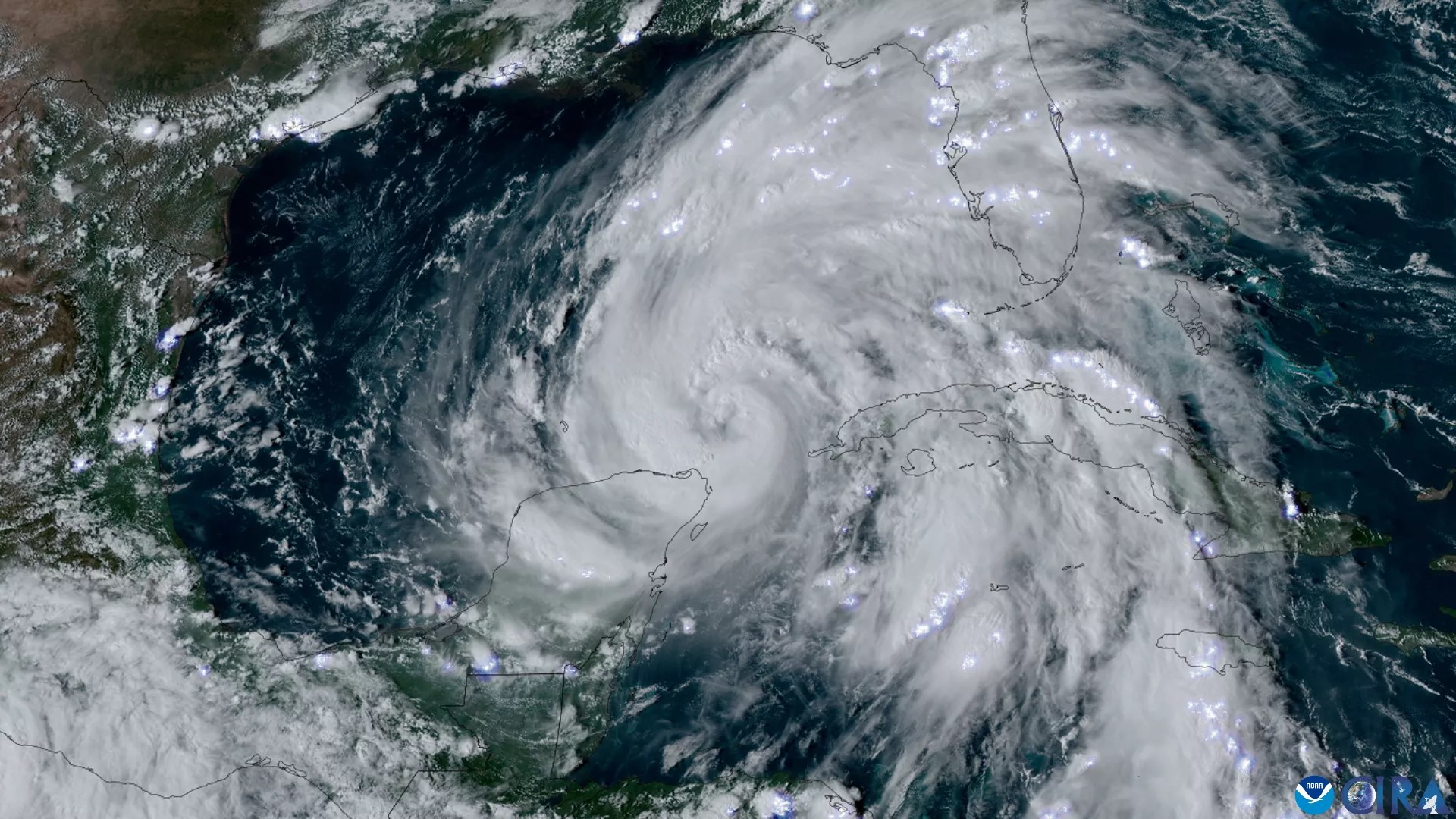
Photo by the National Oceanic and Atmospheric Administration (NOAA)

Audio By Carbonatix
The termination of crucial satellite data for hurricane forecasting and monitoring will be delayed a month at the peak of an “above-normal” hurricane season. The National Oceanic and Atmospheric Administration (NOAA) said that the new cutoff date is July 31.
“On June 30, FNMOC had planned to decommission the DMSP ingest system in Monterey to mitigate a significant cybersecurity risk to the High-Performance Computing environment,” the satellite alert message states. “However, late on Friday, June 27th, CNMOC received a request from Dr. Germain with NASA to postpone the removal and to continue processing and distributing DMSP data through July 31st.”
Last week, NOAA announced that the U.S. Department of Defense would stop sharing the data with NASA and NOAA on June 30, sparking fears among hurricane experts who say that the termination will severely limit accurate hurricane forecasts this season and could endanger millions of people.
A huge blow was dealt to hurricane forecasters this week as a critical tool was abruptly terminated by @DeptofDefense and @NOAA. The immediate discontinuation of data from 3 weather satellites will severely impact hurricane forecasts this season and beyond https://t.co/0Zk92kjKNB pic.twitter.com/FRbf5LKi55
— Michael Lowry (@MichaelRLowry) June 26, 2025
“Due to recent service changes, the Defense Meteorological Satellite Program (DMSP) and the Navy’s Fleet Numerical Meteorology and Oceanography Center (FNMOC) will discontinue ingest, processing, and distribution of all DMSP data no later than June 30, 2025,” the initial announcement read. “Users should expect all FINE, SMOOTH, and HOUSEKEEPING data from Operational Lincescan System (OLS), Special Senior Microwaves Imager Sounder (SSMIS), all Near-Earth Space Weather instruments to be terminated. This service change and termination will be permanent.”
The data is crucial for ensuring accurate hurricane forecasting because it allows forecasters to look beneath clouds for clues that a storm will intensify or could rapidly strengthen before landfall. The climate community says the imagery is vital to determine if a storm will intensify overnight.
“Visible and infrared satellite imagery capture cloud top details, but not what’s happening *inside* a named storm,” Matthew Cappucci, an atmospheric scientist and meteorologist, wrote on X, the platform previously known as Twitter. “By resolving changes in a cyclone’s inner structure, we’re able to see how a storm is evolving and potentially rapidly strengthening.”
***NOAA suspending critical hurricane-forecasting satellites***
This is not a political post – but rather a notice that a vitally-important satellite used to probe and track hurricanes will be discontinued within a week.
This will have noticeable negative impacts on hurricane… pic.twitter.com/iI7oVlQF4o
— Matthew Cappucci (@MatthewCappucci) June 26, 2025
Cappucci warned that this data loss will create “an enormous hole in hurricane forecasting.”
Miami hurricane specialist and storm surge expert Michael Lowry, on his Substack, said the three weather satellites “provide roughly half of all microwave satellite scans to forecasters.” In response to Lowry’s inquiry into the stop in service, NOAA pointed out that it would still use other tools, like the Advanced Technology Microwave Sounder (ATMS), to predict hurricanes. Lowry wrote, “ATMS is not a replacement for SSMIS, which is why forecasters and hurricane scientists are sounding the alarm.”
“If the termination is due to a ‘significant cybersecurity risk’, why grant a month reprieve?” Lowry added. “If the data can continue to flow harmlessly through July, why the initial rush to immediately shut it off?”
The whole thing raises more questions than it answers. The satellites work. Why not keep the data flowing to scientists who use it to forecast the deadliest storms on earth? And no, one WSF-M satellite doesn't solve this and right now we don't have access to that data regardless.
— Michael Lowry (@MichaelRLowry) June 30, 2025
Miami meteorologist John Morales said suspending data transmission will put lives and livelihoods at risk. Floridians could be caught off guard by a storm’s intensity and be unprepared.
“Since models aren’t always right and hurricane forecasters aren’t either, not being able to follow the lifecycle of a storm on a nearly continuous basis can lead to unpleasant, costly, and potentially deadly surprises,” Morales wrote in a new column for WTVJ (Channel 6).
Meteorologist Matt Lanza called the move a “completely inexplicable decision by the current administration.”
“This has a direct ripple effect on not just observations but all modeling we use to forecast hurricanes,” Lanza added. “This will directly degrade hurricane forecasts, full stop.”
Another completely inexplicable decision by the current administration. This has a direct ripple effect on not just observations but all modeling we use to forecast hurricanes. This will directly degrade hurricane forecasts, full stop. https://t.co/OTdETwEn0d
— Matt Lanza (@mattlanza) June 26, 2025
Experts say the staffing cuts to the National Weather Service and NOAA will also negatively impact hurricane forecasting.
Earlier this month, Morales went viral for telling his evening newscast viewers that he could no longer properly prepare them for potential hurricanes amid the “sledgehammer attack on science.”